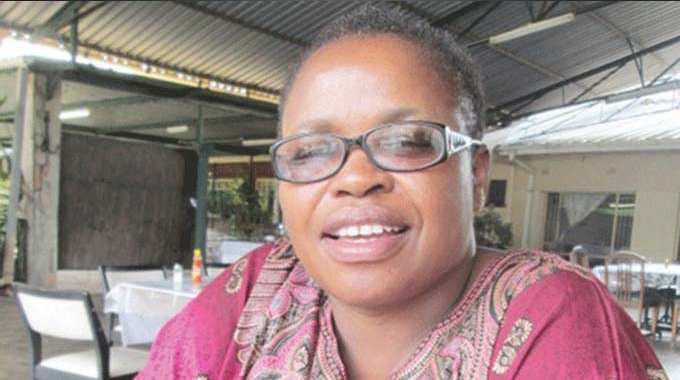Ministry to tackle corruption in mining sector

Sukulwenkosi Dube-Matutu, Gwanda Correspondent
THE Parliamentary Portfolio Committee on Mines and Mining Development is working on improving the country’s mining laws and policies so they are water tight in order to curb corruption, an official has said.
Speaking during a Matabeleland South Provincial anti corruption indaba, a member of the Portfolio Committee, Cde Marian Chombo, said the Mines and Minerals Act and the Gold Act were outdated, creating a window for corrupt tendencies in the mining sector.
She said Government was currently working on drafting a Mines and Minerals Bill which seeks to address grey areas in the mining sector such as titles, land degradation and the use it or lose it policy.
“At the moment the Government through the Ministry of Mines Development is drafting a Mines and Minerals Bill to address grey areas. This Bill brings with it the computerised cadastre system which will go a long way in solving title disputes thereby curbing corruption. Mining disputes have become a common feature of corruption mainly affecting the small scale and artisanal miners in the country.
“It also seeks to close the gap slowing down growth in the mining sector because more recent practical developments in the mining sector are not incorporated in the current existing laws,’’ she said.
Cde Chombo said the current Mines and Minerals Act and Gold Act were making it difficult for miners to operate as they were not in line with practices on the ground.
She said there was also a need for Government to willingly release ground to miners through adoption of the “willing buyer willing seller principle’’ as a support mechanism for small scale miners.
Cde Chombo said there was also need for the ‘‘use it or lose it’’ principle to make a policy through a review of the Mines and Minerals Act.
She said in most parts of West Africa artisanal miners were better empowered due to a number of deliberate policy positions adopted by their governments.
‘‘In Zimbabwe it’s still a criminal offence for most small scale miners to be found in possession of gold that is why the portfolio committee is emphasising the need to revisit and review the Gold Trade Act. As Parliament we are focused on combating corruption in the mining sector and ensuring protection of small scale and artisanal miners,’’ Cde Chombo said.
The director of Community Youth Development Trust (CYDT), which organised the event, Mrs Sichasisile Ndlovu, said her organisation had engaged in a project to fight corruption in the mining sector after realising that it was hindering empowerment of youths.
‘‘As an organisation that deals with youths we have realised that young people are unable to reach their potential because of corruption. Youths in Matabeleland South Province hail from a region endowed with a lot of natural resources such as minerals but they are not benefiting from these resources because of corruption.
“The purpose of this indaba is to come up with measures to fight corruption in the mining sector,’’ she said.
Speaking at the same event, Chief Mathema said there was a need for traditional leaders to be involved in the allocation of mines.
He said it was imperative for locals to benefit from resources in their areas.
Chief Mathema said there was monopolisation of claims by big mining companies which left locals sidelined.
He said there was also a need for people at grassroots to be consulted when mining laws were being drafted.
Speaking on the role of police in fighting corruption in the mining sector, Matabeleland South provincial police spokesperson Chief Inspector Philisani Ndebele, urged members of the public to desist from engaging in corrupt activities and encouraged them to report incidences of corruption.
Zimbabwe Anti Corruption Commission (ZACC) official Dr Onesimus Nyaude gave a run down on the role of Zacc in addressing corruption in the mining sector. – @DubeMatutu











Comments